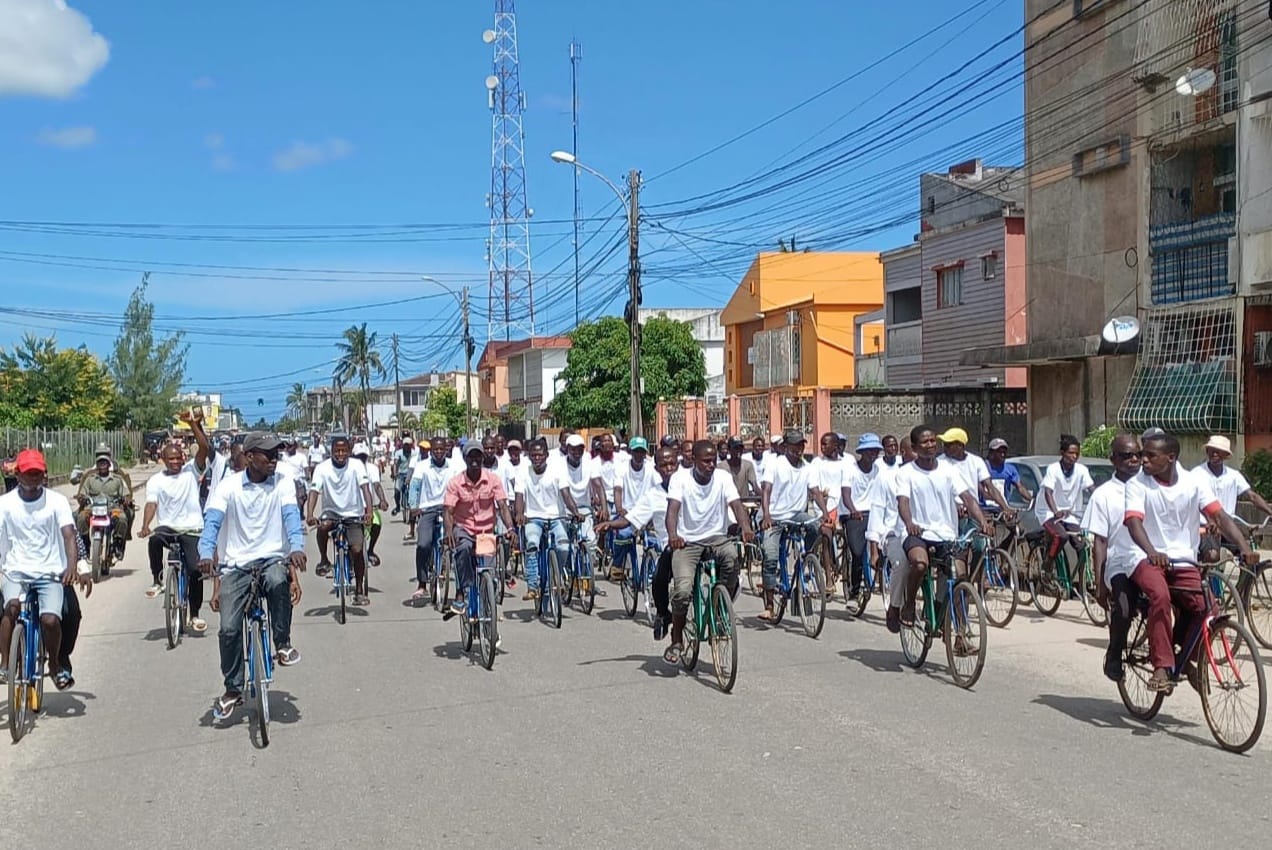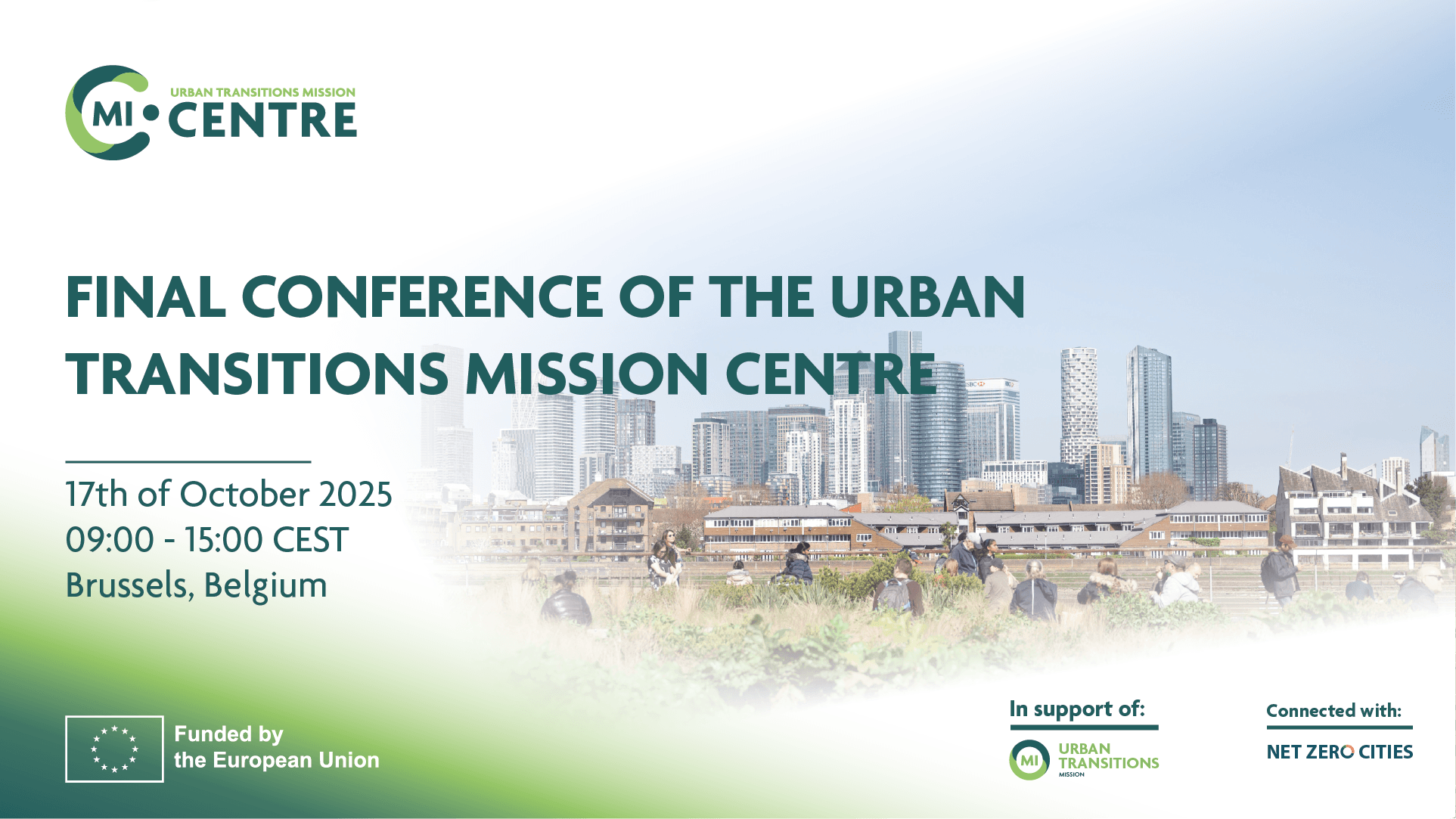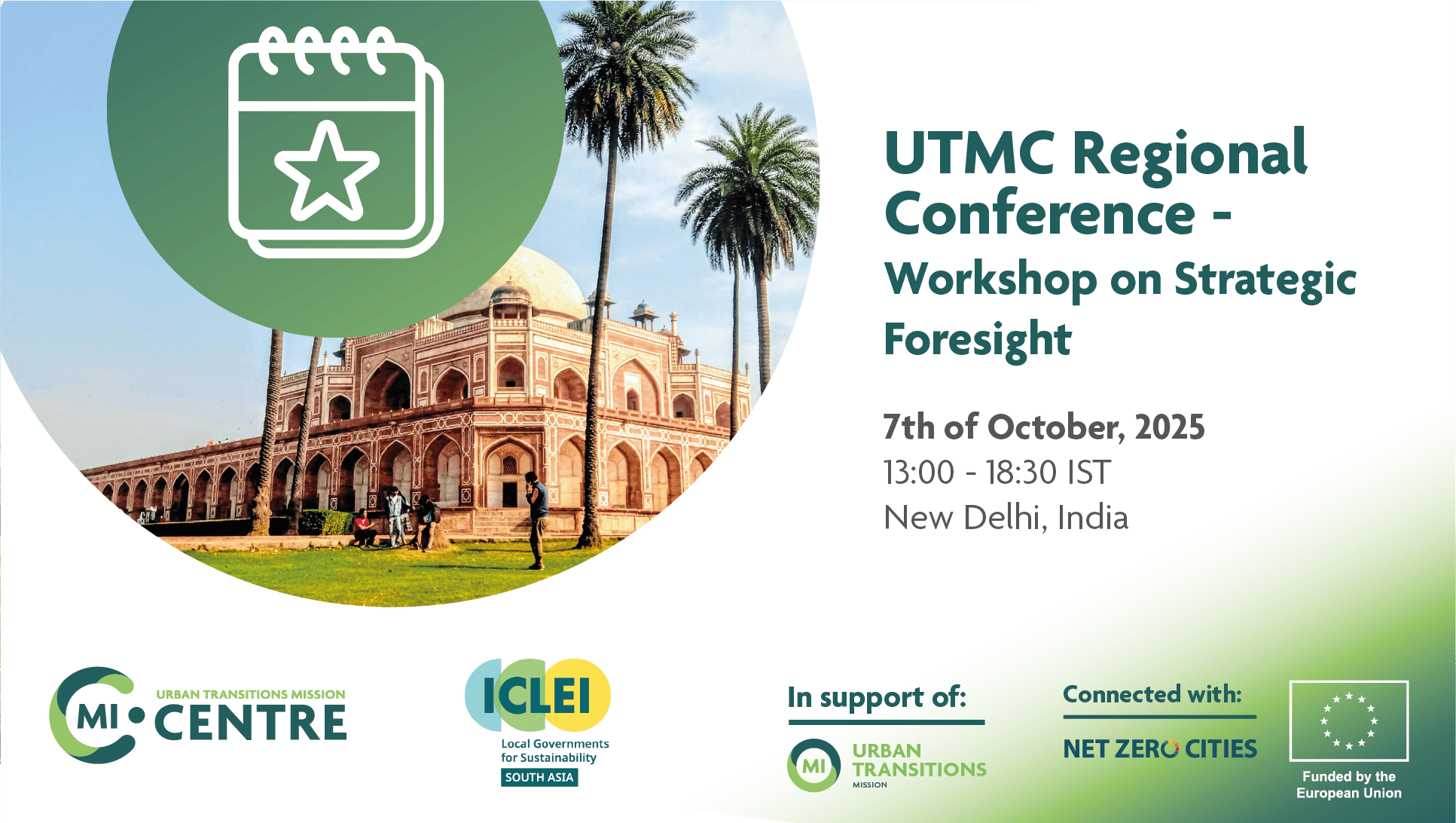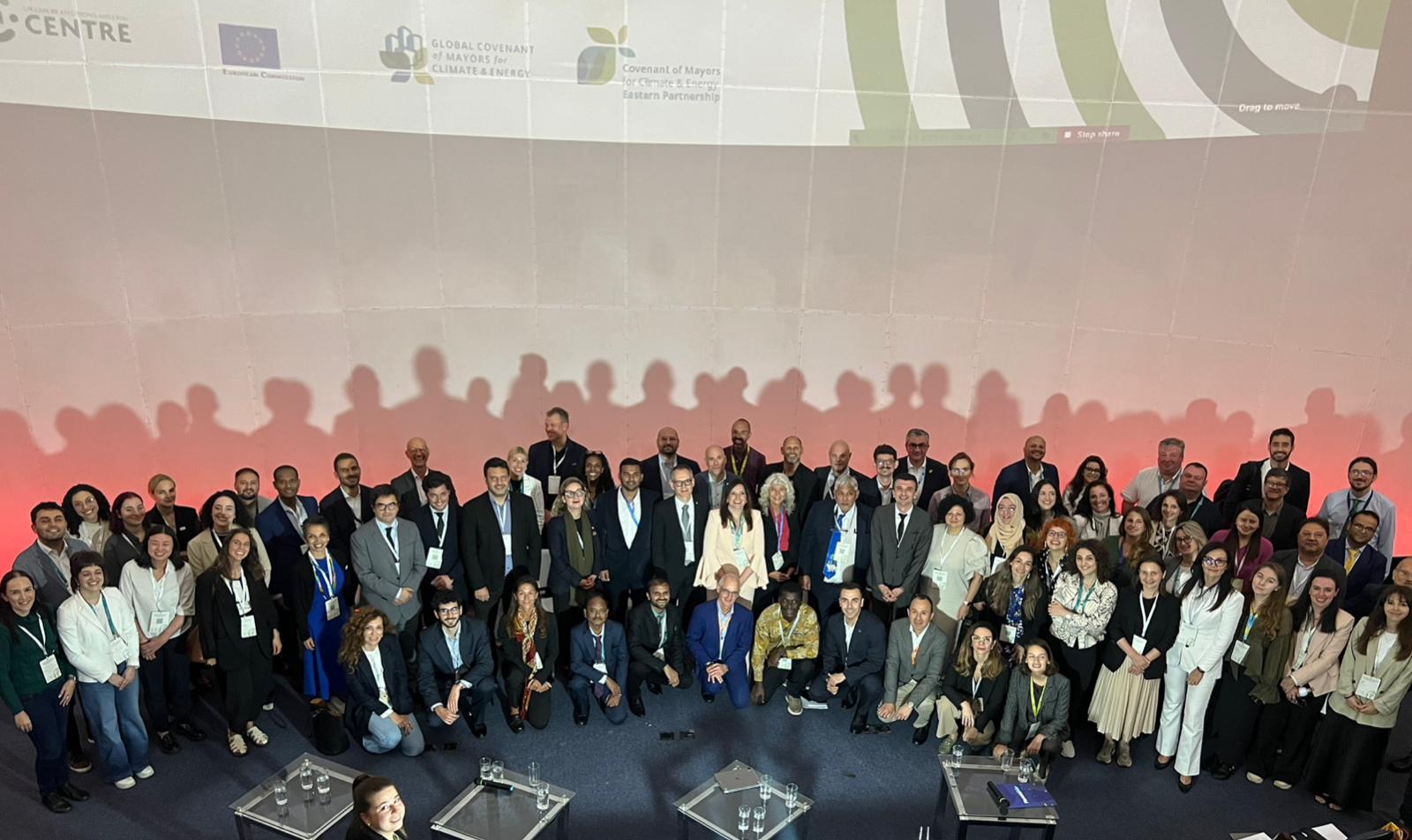At COP30, ICLEI – Local Governments for Sustainability convened the session “Keep Building Resilient Urban Energy Systems”. The event marked the launch of the new Practical Implementation Guide: Resilient Urban Energy Systems, developed by ICLEI Europe as part of Urban Transitions Mission Centre (UTMC) knowledge resources.
The session, moderated by Carsten Rothballer, Head of Sustainable Energy Systems at ICLEI Europe, explored how cities around the world are building energy systems that can withstand climate shocks, geopolitical instability, and rapid technological change.
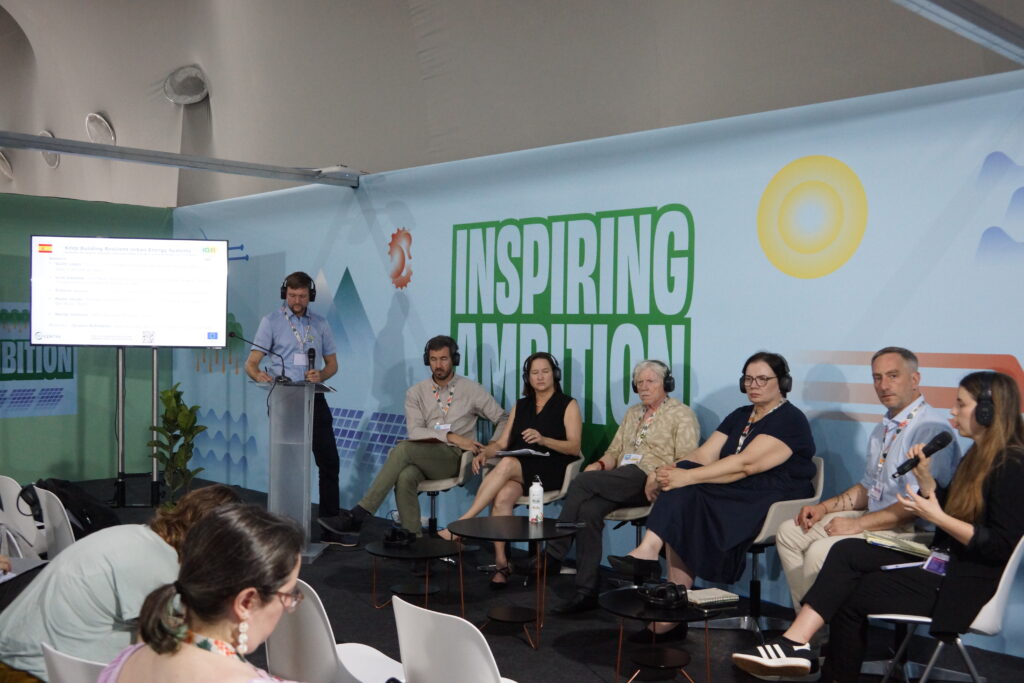
Local Solutions for Global Resilience
City representatives from Barcelona (Spain), Palo Alto (USA), Tampere (Finland), Quilmes (Argentina), and São Paulo (Brazil) shared how they are transforming their local energy systems to become more sustainable, decentralised, and equitable.
- Palo Alto, one of the few U.S. cities that owns all its utilities, has been carbon-neutral since 2013. The city is modernising its grid through advanced sensors, underground infrastructure, and a new transmission line, ensuring reliability in the face of wildfires and supply chain disruptions.
- Tampere is harnessing its bio-based economy and circular energy systems to produce e-methane and hydrogen, turning CO₂ emissions into valuable feedstock. Waste heat and biochar are reintegrated into industrial processes, demonstrating how circularity supports both affordability and innovation.
- Barcelona’s Metropolitan Area focuses on decentralised solar and wind systems and promotes citizen participation through energy communities. To achieve its goal of 100 % renewable energy transition by 2030, the municipality leverages public and private financing and promotes programs aiming to provide access to citizens to affordable PV installations.
- Quilmes, representing cities in the Global South, is tackling energy inequality by extending access to clean energy in informal settlements, where private utilities fall short. Local governments play a critical role in bridging this gap and ensuring just energy transitions.
São Paulo emphasised that resilience must go hand in hand with social justice. While Brazil’s hydro-dominant system faces challenges from droughts and privatisation, cities are working to ensure equitable access to renewable energy and reduce dependence on fossil fuels.
Resilience as an Economic Imperative
The discussion underlined that energy resilience is not only a climate issue but an economic one. According to the United Nations Office for Disaster Risk Reduction for every US $1 invested in disaster-resilient infrastructure, US $4 are saved in avoided losses. Yet, financing remains a major challenge for local governments, particularly in developing regions where credit ratings and technical expertise are limited.
The Practical Implementation Guide: Resilient Urban Energy Systems offers actionable strategies to help cities assess vulnerabilities, plan investments, and implement resilient, low-carbon energy systems. Drawing from global experiences and multilevel governance models, it highlights the importance of cross-sector partnerships, innovative finance mechanisms, and decentralised energy production to enhance both security and sustainability.
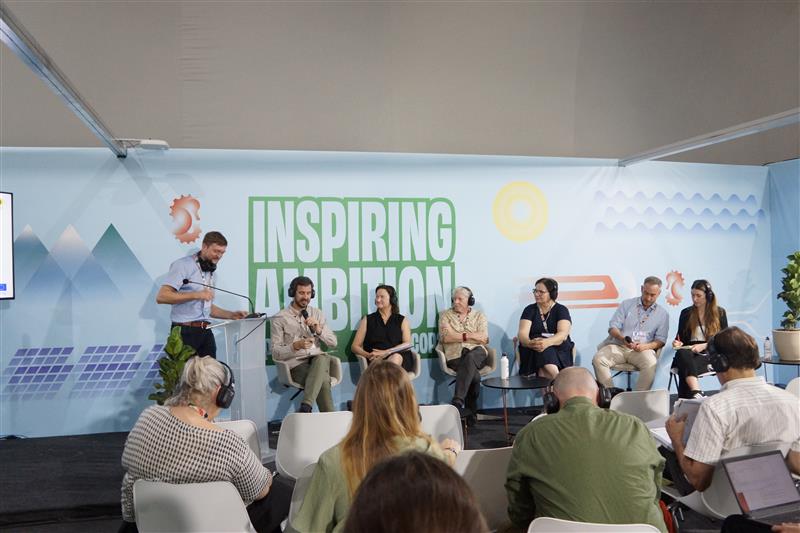
Energy Systems for the Urban Century
With 75 % of global energy consumed in cities, resilience planning is becoming a central pillar of urban policy. The growing demand for electricity, digitalisation, and data-intensive industries makes reliable and adaptable energy systems a foundation for future urban life.
From Northern California’s smart grids to Finland’s circular CO₂ innovations, Spain’s community-owned renewables, and Argentina’s equitable access models, cities are showing that the path toward resilient energy is as diverse as it is interconnected.
As UTMC and its partners continue to support cities worldwide, this session reaffirmed that urban resilience begins with empowering local governments — giving them the knowledge, partnerships, and financial tools to act decisively in the face of global uncertainty.
Explore the guide: Practical Implementation Guide: Resilient Urban Energy Systems

